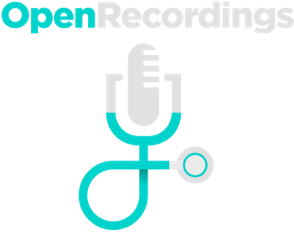
An Assessment of Open Access Audio of the Clinical Encounter on Veterans and their Care
Principal Investigator
Saul J Weiner, MD (CINCCH at Jesse Brown VAMC)
Public Health Relevance
As a great majority of the information exchanged during a clinic visit can be immediately forgotten after finishing a visit with their clinicians, the VA and Veterans themselves are in need of tools which may assist them in retaining that which might otherwise be forgotten. The known benefits of OAA, such as better patient recall and understanding, allowing for improved health care outcomes. We will elucidate the recording's effect on physicians’ communication, specifically tailored to an individual's Veteran’s need. We will determine the acceptability of recording clinic visits for both patients and physicians and, should it prove to be unburdensome and beneficial, will explore OAA’s incorporation into Patient Portals in the future.
Funding Source
United States Department of Veteran Affairs Health Services Research and Development Service
Project Period: 2020-2023
Other Project Staff
Louis Stokes Cleveland VAMC: Corinna D. Falck-Ytter, MD; CINCCH at Jesse Brown VAMC: Frances Weaver, PhD; Gunjan Sharma, PhD; Sherry Ball, PhD; Amy Binns-Calvey; Valencia Burton; Ben Kass; Brian Bartle; University of Illinois at Chicago: Alan Schwartz, PhD; Dartmouth College: Paul J Barr, PhD MPH; Lisa Oh, MS; Susan Tarczewski CCRP
Project Summary
The medical encounter can be overwhelming in terms of the amount of information discussed, its technical nature, and the anxiety it can generate. Easy access to a secure audio recording from any internet enabled device is an available low cost technology that allows patients to “revisit the visit” either alone or sharing with caretakers and family. It has been introduced and tested outside the VA with evidence that it increases patient recall and understanding and may even improve physician performance. Little is known, however, about whether and to what extent these effects lead to better outcomes, such as improved treatment plan adherence and chronic disease self-management. Our study will assess a new resource for enhancing Veterans capacity to understand their care plan, and share information from their visit with caregivers. The study design is intended to yield information to guide decision makers about the value of bringing “open access audio” (OAA) to VHA. OAA extends the same principles of the Open Chart Movement--wherein patients can freely access their personal medical information thanks to the introduction of the Patient Portal--such as full transparency, ease of access to medical data and portal integration. Using a randomized, controlled, three-arm trial, (1) we will assess whether the benefits of OAA leads to desired service utilization and improved health care outcomes. (2) We will also measure OAA’s effect on provider behavior which may mediate those outcomes. (3) Throughout the study, data will be collected on both the patient’s and other stakeholder’s perception of the program, reflecting a readiness to adopt this new technology. The VHA Office of Connected Care, which manages MyHealtheVet has indicated interest in this project because of its potential to transform the next generation portal.

